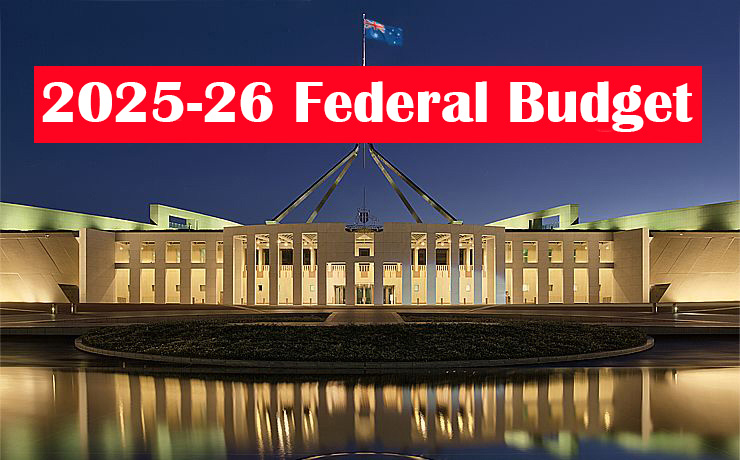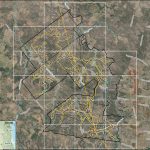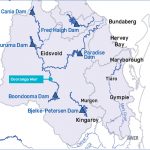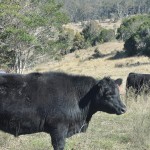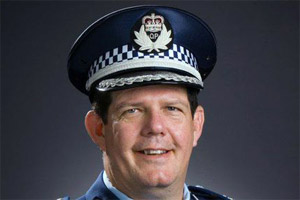
March 26, 2025
There was some good news for Local Government in Tuesday night’s Federal Budget with councils receiving an extra $316 million in direct funding.
This includes a $144 million increase in Financial Assistance Grants and a $172 million rise in Roads to Recovery funding, the latter being part of a commitment secured by the Australian Local Government Association in 2023 to gradually increase roads funding from $500 million to $1 billion a year.
“As councils, we manage more than 75 per cent of Australia’s road network so this funding boost is welcomed and crucial in supporting us to deliver safer and more productive roads,” ALGA president, Gladstone Mayor Matt Burnett said.
Financial Assistance Grants will rise from $3.309 billion to $3.453 billion, in line with a legislated indexation formula.
Road To Recovery funding will rise from $649 million to $821 million.
Mayor Burnett, who stood for the ALP at the last Federal Election, said other key funding announcements for councils were:
- An increase in Black Spot Program funding, from $131 million in 2024-25 to $150 million in 2025-26
- An increase in the Safer Local Roads and Infrastructure Program, from $196 million in 2024-25 to $310 million in 2025-26
- $506 million over five years to achieve better outcomes for First Nations people under the National Agreement on Closing the Gap
- $132 million for preventative health, including support for sporting facilities
- $29 million over two years to improve Australia’s resilience to natural hazards
- $723 million over four years for increased support for apprentices.
“While these programs and increases are appreciated, it is disappointing there were no new funding programs announced to address the financial sustainability emergency in local government,” Mayor Burnett said.
* * *

The National Farmers Federation acknowledged some new funding for agriculture in the Federal Budget, including $3.5 million for a National Food Security Strategy.
But president David Jochinke said the Budget fell “well short of the investment needed to unlock agriculture’s full potential”.
“Farmers are grappling with major geopolitical, environmental and societal shifts. We need a sharper focus from government to ensure we keep farmers farming, and keep food affordable for Aussie families.”
The Budget included $6.8 million for international engagement and market access, as well as $20 million for a Buy Australian campaign but the NFF was disappointed that Murray-Darling Basin water buybacks were “again shrouded in secrecy”.
“Yet again, the government hasn’t disclosed what buybacks are costing taxpayers,” Mr Jochinke said.
“The government’s buyback program is being conducted behind closed doors, with no regard for the communities impacted nor for adhering to corporate best practice.”
* * *
The South Burnett’s three LNP Federal MPs were less than impressed with the Federal Budget:
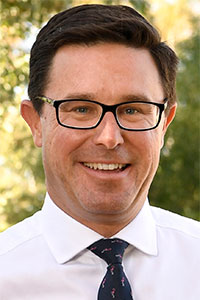
Nationals Leader David Littleproud (Maranoa) said Labor had “once again cut funding to regional, rural and remote Australians”.
“Labor has no new funding for the Stronger Communities program, Local Roads and Community Infrastructure program, Growing Regions program and the Regional Precincts and Partnership program, critical to building community infrastructure in regional Australia,” Mr Littleproud said.
“Labor has again deferred $190 million in funding for Paradise Dam, Hughenden Irrigation Scheme and Big Rocks Weir, while hiding the cost of its Murray-Darling Basin Plan.”
Mr Littleproud said Labor was “obviously raiding what was left of regional community programs to pay for 41,000 new Canberra public servants”.
Colin Boyce (Flynn) said the Budget was “short-sighted and a kick in the guts for rural and regional Australia”.
“Labor has once again cut funding to rural and Australians in the Flynn electorate,” Mr Boyce said.
“They’ve kicked the rebuild of Paradise Dam in the Wide Bay down the road by deferring more than $190 million for water infrastructure.
“Labor is obviously raiding what was left of regional community programs and infrastructure to pay for 41,000 new Canberra public servants.”
Llew O’Brien (Wide Bay) said it was a “red ink Budget that will cost Australian taxpayers more”.
“Labor’s election eve red ink Budget recipe is filled with higher taxes, higher spending, higher debt, higher deficits, higher interest payments, topped up with higher immigration, all leading to higher cost of living pressures, that will cost Wide Bay families and businesses more.
The Albanese Labor Government’s 2025-26 Budget takes our gross national debt to $1.022 trillion and forecasts a deficit of $42.122 billion.
“This is your money that the Labor Government is putting on the credit card because it has failed to get expenditure under control, and taxpayers will be left to foot the bill and the interest.
“Labor’s immigration surge by more than 1.602 million people, rising to 1.8 million people, has created a housing, rental and homelessness crisis, and Labor’s reckless spending has fuelled inflation and interest rate hikes, stretching household budgets.”






